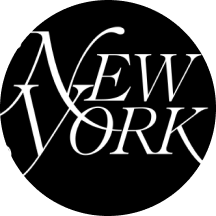Many Canadian conservatives express admiration for Edmund Burke, often reminiscing about his principles as if they were cherished memories. They invoke Burkean themes of common sense and gradual change, suggesting a longing for a cohesive society that values established norms and institutions. However, the reality of Burkean conservatism in Canada appears more as an aspiration than a practical framework. The vision of a Canada where institutions honor the past is increasingly seen as unattainable. Howard Anglin has noted that liberalism has eroded many traditional societal bonds, leaving the social order precariously dependent on a few procedural elements. He argues that liberalism has essentially “swallowed its tail.” Activist courts have expanded their authority under the Charter, often prioritizing “social justice” and specific interests. This shift has altered the foundational aspects of a society based on ordered liberty to align with progressive objectives. Consequently, the Canadian federal public service has expanded significantly, growing nearly 40% since 2015 and costing approximately $71 billion annually. Currently, about one-quarter of Canadians are employed by the state, with a ratio of nine federal employees for every 1,000 residents, which is higher than in comparable nations. The bureaucracy has become a dominant force, often perceived as a managerial entity that seeks to reshape the national narrative. It wields considerable influence over cultural definitions, determining what is deemed “heritage” or “contraband.” This power has been largely appropriated by the left, which has gained control over educational institutions, accreditation bodies, grant councils, and cultural organizations. Recent actions, such as Library and Archives Canada removing references to Sir John A. Macdonald from its website, illustrate a trend of diminishing historical figures in favor of a narrative that often emphasizes “settler” guilt. Additionally, since 2021, numerous historic churches across Canada have been targets of arson, with many destroyed. This violence has not prompted a national dialogue about the implications of such attacks on the cultural fabric of the country. The groundwork for this cultural shift was laid by figures like former Prime Minister Pierre Trudeau, who transformed Canada from a bicultural Dominion into a state defined by flexible, modern values. This new order relies on the older Canada for the unwritten customs and traditions that unify a populace. In response, conservative advocates propose ambitious reforms, including tax changes, enhanced parental leave, and calls for universities to embrace intellectual diversity. While these measures may have been sufficient in a Canada reminiscent of Macdonald and Laurier, they seem inadequate in a contemporary context where foundational values are often treated with disdain. To reclaim what is worth preserving, conservatives may need to adopt a more aggressive approach. This could involve dismantling government-run institutions and defunding non-governmental organizations that have thrived under the current liberal framework. A significant reduction in bureaucracy may be necessary to restore liberty and foster a free economy. In provinces like British Columbia and Ontario, the hiring of government managers has surged, while essential services and private-sector jobs have declined. For conservatives at both provincial and federal levels, implementing these changes while in power is crucial. Without decisive action, they risk merely maintaining the status quo of modern progressivism or making only minimal gains.
Canadian Conservatives Struggle to Uphold Burkean Principles
 Canada NewsJust now
Canada NewsJust now
14


 New York Magazine Intelligencer
New York Magazine Intelligencer The Conversation
The Conversation Rotoballer NFL
Rotoballer NFL Mediaite
Mediaite NPR
NPR AlterNet
AlterNet Tampa Bay Times Sports
Tampa Bay Times Sports The List
The List